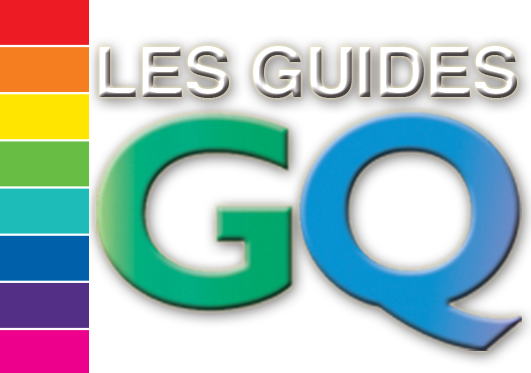Julien Cadieux's Films: A Discussion on Inclusion!
Early one morning in early May, over coffee at Adorable Chocolat in Shediac, Acadia, his hometown, Julien Cadieux agrees to share a portion of his already extensive experience as a filmmaker, screenwriter, director, and editor.
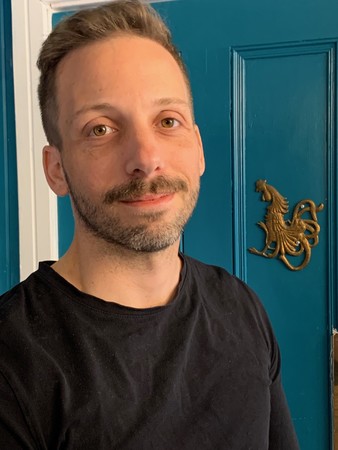
Quickly, the issue of inclusion arises and almost becomes the central point of this interview. Because for him, that's what motivates his work as a filmmaker: giving voice and exposing the experiences of people who face issues related to their identity, origins, sexuality, interactions with institutions and organizations, social justice, among others.
Since 2008, after studying film at Concordia University in Montreal, he has taken on numerous projects and productions, some of which have been awarded and have been highly successful among various communities. "Cinema in Acadia has a real impact on the community. People need to see themselves in cinema. That's what drives me first in my productions," he assures.

He has personally scripted, edited, and directed a dozen productions, most related to Acadian subjects, the best known of which are Y'a une étoile (2023), Daniel Le Tisserand (2023), Farlaques (2021), Métisser une rivière (2020). In Quebec, his documentary Guilda: elle est bien dans ma peau (2014) about this famous Montreal transformist artist of French origin, a true pioneer of sexual diversity for sixty years.
Many of these films have been awarded at film festivals here and elsewhere, in Quebec, Canada, and even in France and the United States. It is particularly his queer-themed films that receive greater visibility and recognition. Precisely because they give voice to or highlight specific situations related to members of various LGBT communities.
Julien Cadieux has also contributed to the editing and scripting of about twenty other film or video productions since 2006.
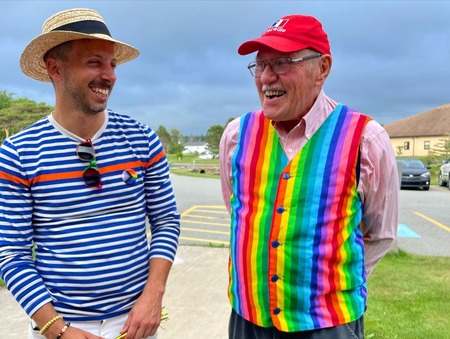 With Dan Robichaud, from the film Daniel Le Tisserand
With Dan Robichaud, from the film Daniel Le Tisserand
Is there a queer life outside of big cities? To this question, Julien Cadieux responds that it is possible, but that various constraints may discourage those who wish to continue their life in rural areas, for example in Acadia, where LGBT-friendly healthcare services are almost non-existent. Many therefore choose to leave the regions to live in urban areas, such as Moncton, even though not everything is easily accessible there. These are the kinds of issues he addresses in several of his documentaries.
The issue of inclusion particularly interests him. In this context, he is soon to undertake a film about an immigration project in the Cap-Pelé region where many temporary foreign workers from Mexico, Jamaica, and the Philippines, among others, face difficult inclusion situations. The case of LGBT individuals among them is also of concern, according to Julien Cadieux.
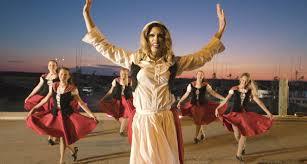
In his film "Y'a une étoile," we meet Samuel Leblanc, a young transgender musician, who embarks on a journey with his friends from the band Écarlate through the work of Acadian artist Angèle Arseneault. Originally from a small village, Samuel has long questioned his queer identity and cultural identity. Through his double minority and the journey of young people like him, we discover that despite the obstacles, "there is a star for each of us."
This film is a very frank evocation of what Julien Cadieux wishes to demonstrate and present in his documentary cinema, in connection with Acadia, queer identity, the reality of the arts that fascinates him, and the human encounters he makes throughout his journey.
It should be noted that Julien Cadieux was named "Artist of the Year in Media Arts," specifically for the film Y'a une étoile at the Les Éloizes 2024 ceremony, the annual gala of the Association acadienne des artistes professionnel.le.s du Nouveau-Brunswick, in Shediac last Sunday, May 12.
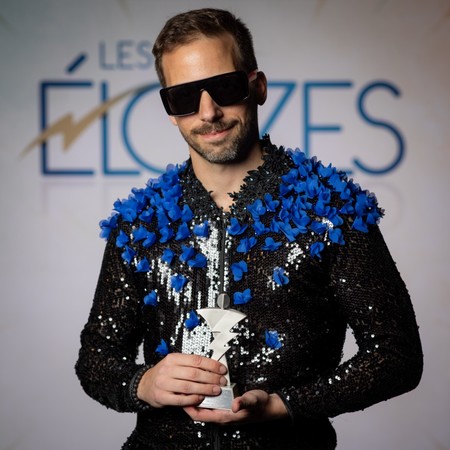
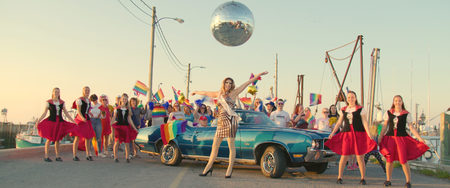
Julien Cadieux, filmmaker
Shediac, NB
facebook.com/julien.cadieux
